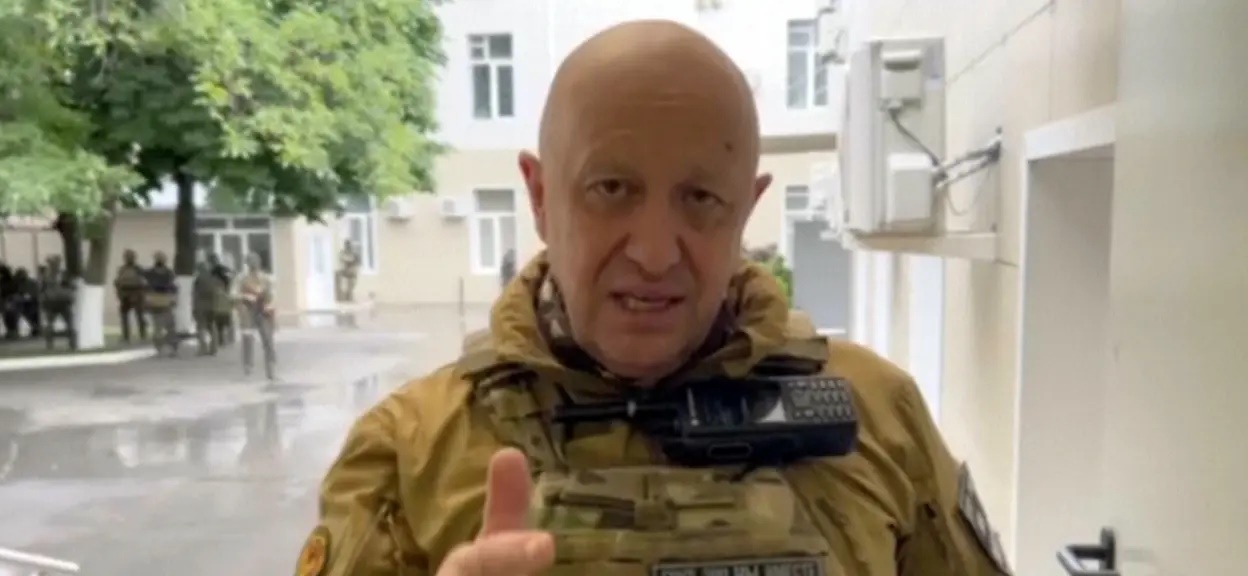Only days after the uprising, Russia’s President Putin apparently met with Wagner boss Prigozhin and several officers. They are said to have declared their willingness to continue fighting for their fatherland.
The Kremlin has confirmed reports of a meeting between Russian President Vladimir Putin and Wagner mercenary leader Yevgeny Prigozhin after his revolt against the military leadership in June. “Indeed, the president had such a meeting, he invited 35 people to it – all the commanders of units and the management of the company, including Prigozhin himself,” Kremlin spokesman Dmitry Peskov said, according to the Interfax news agency. Putin had previously described the Wagner insurgents as “traitors”.
Experts have been speculating for days about the future of Prigozhin and his Wagner troupe, which is also important to the Kremlin in Africa and the Middle East. According to Peskov, the debate lasted three hours and took place on June 29 – several days after Prigozhin’s failed revolt against the military leadership.
During the conversation, Putin gave his assessment of both Wagner’s activities on the battlefield in Ukraine and during the June 24 uprising. The Kremlin chief also listened to the Wagner officers’ version of the uprising. They explained their version of events and assured that they were loyal supporters and soldiers of the President and Commander-in-Chief. They are ready to continue fighting for their homeland.
The Wagner mercenaries fight alongside the regular Russian army in Ukraine. Prigozhin has repeatedly criticized the military leadership harshly. On June 24, he accused her of ordering an attack on his troops and sent his fighters to Russia. However, Prigozhin broke off his mercenaries’ march on Moscow and agreed to go into exile with his fighters in Belarus. In return, they should not be prosecuted. However, many details of the agreement brokered by Belarusian President Alexander Lukashenko are unclear. And what has been disclosed has apparently not yet been fully implemented. Lukashenko announced on Thursday that Prigozhin was in St. Petersburg and his mercenaries were still in their camps.
Russian chief of staff appeared in public
Meanwhile, the Russian chief of staff, Valeri Gerasimov, has made his public appearance for the first time since the Wagner mercenaries revolted. The Ministry of Defense showed a video recording that is said to show him at a meeting with leading generals from the military intelligence service GRU on Sunday. In the clip, he is referred to as Chief of the General Staff of the Russian Armed Forces, which is his official post. The ministry is thus demonstrating that Gerasimov, who was severely criticized by mercenary boss Prigoshin, has retained his post.
Prigozhin’s uprising on June 23-24 was aimed at deposing Gerasimov and Defense Minister Sergei Shoigu. Unlike Shoigu and President Putin, however, nothing had been seen or heard from Gerasimov in public since the mutiny. This also applies to Sergey Surovikin, who is Gerasimov’s deputy as commander of the military operation in Ukraine and whose fate has so far left the Russian leadership open. Because of the top generals’ absence from the public eye, rumors began to swirl as to whether they knew in advance of the mercenary mutiny and what happened to them. The 67-year-old Gerasimov is the third most powerful man in the Russian military after Putin and Shoigu.

 The Royal Mile is becoming increasingly dangerous
The Royal Mile is becoming increasingly dangerous Scholz speaks to Putin on the phone for the first time in two years
Scholz speaks to Putin on the phone for the first time in two years More riots in Amsterdam
More riots in Amsterdam